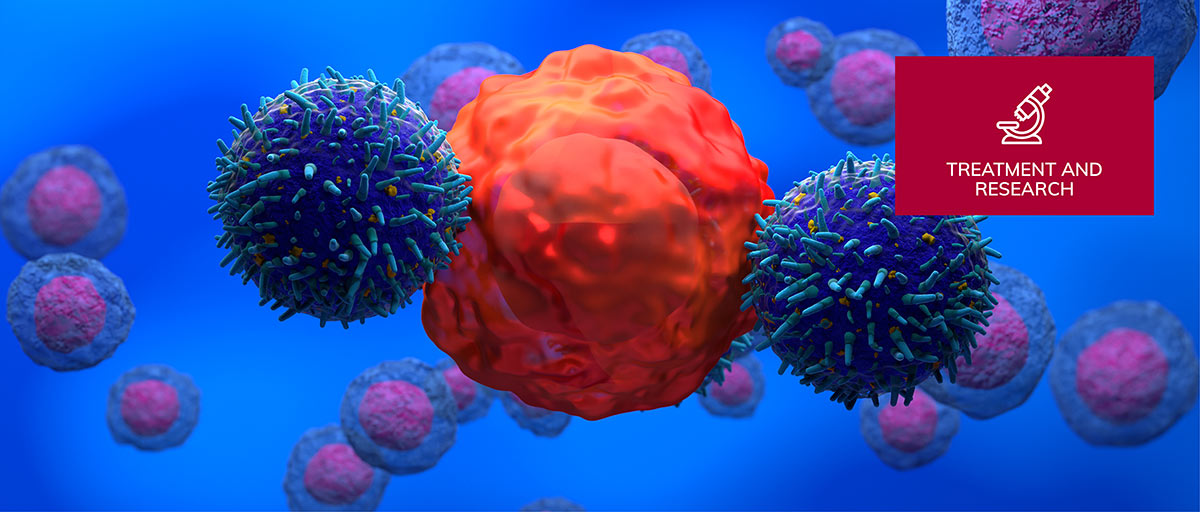
CLL / SLL Treatment and Research
Advancements are happening everyday
Treatment and research are intimately linked. The best treatments today may be upstaged by new therapies discovered in research in the future. Take your time to learn about treatment options currently available and new ones that are on the way.
Advancements are happening everyday
Treatment and research are intimately linked. The best treatments today may be upstaged by new therapies discovered in research in the future. Take your time and learn about what treatment options are now available and the new ones are on the way.
Treatment and Research: 4 Things to Know
CLL patients are living longer than ever.
The life expectancy of patients diagnosed with CLL / SLL has improved every decade, largely because of improved care made possible by new treatments and research.
CLL treatments are better than ever.
In almost every setting and in almost every subgroup studied, the newer targeted therapies approved since 2015 have proven superior to older protocols using chemotherapy.
Better single agents and drug combinations show promise.
New improved medications and drug combinations are constantly improving outcomes.
Research drives success.
CLL / SLL is not a solved problem and never will be without new treatments and more research.
Ambassador Program for CLL Patients.
For individuals living with CLL / SLL and considering various treatment options, CLL Society’s Ambassador Program can connect you with a fellow CLL patient who has received the treatment. Connect with an Ambassador.
FEATURE
Acalabrutinib-Venetoclax-Obinutuzumab for High-Risk CLL
The Bottom Line:
Frontline combination acalabrutinib, venetoclax, and obinutuzumab produces high rates of undetectable measurable residual disease (uMRD) in patients with CLL, including those with high-risk features.
Who Performed the Research and Where Was it Presented:
Dr. Jennifer Brown from Dana Farber Cancer Institute and colleagues presented the results at the American Society for Hematology (ASH) Annual Meeting 2024.
Background:
Combination therapies are increasingly being studied in the hopes of getting patients with chronic lymphocytic leukemia (CLL) / small lymphocytic lymphoma (SLL) into deeper remissions and allowing for time-limited therapy. For high-risk patients with CLL / SLL who have deletion 17p or TP53 mutations or unmutated IGHV (uIGHV), the conventional wisdom has to keep them on continuous BTK inhibitors. However, there is interest in determining whether combination therapies can get these patients into deeper remissions and possibly give them a break from treatment. In this study, researchers looked at the combination of acalabrutinib plus venetoclax and obinutuzumab (AVO) for treatment-naïve CLL.
ADDITIONAL READING
RECENT NEWS
When appropriate, the CLL Society will be posting updates and background information on the present Coronavirus pandemic focusing on reliable primary sources of information and avoiding most of the news that is not directly from reliable medical experts or government and world health agencies.


